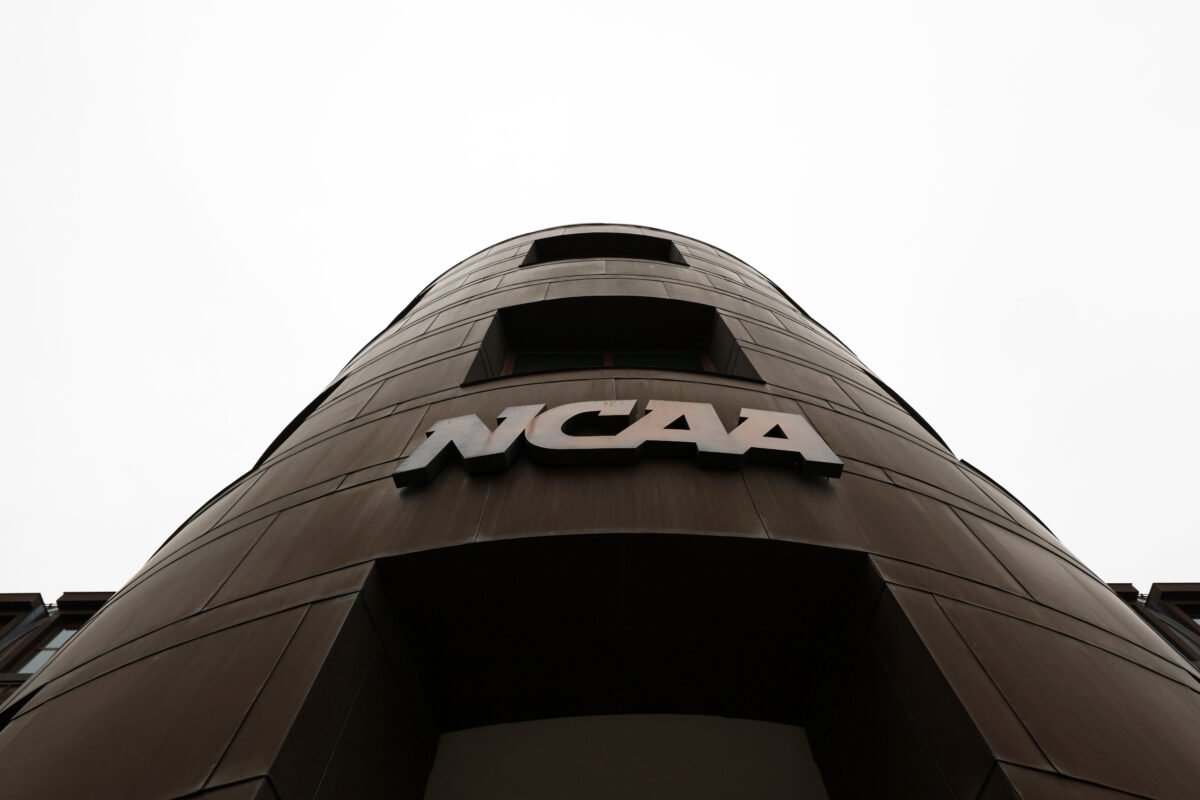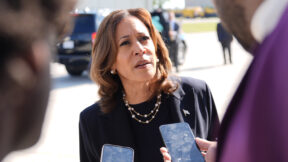5 Bonkers Details to Emerge from The Athletic’s Stunning Expose on College Football’s Transfer Portal

Aaron M. Sprecher/AP
A new report from The Athletic revealed how “out of control” college football’s transfer portal can be in the age of NIL compensation.
In the report, countless players, coaches, agents, and NIL collective officials were surveyed about the current landscape in college football. With unlimited transfers and the ability for players to be paid thanks to name, image, and likeness guidelines, the freedom that student-athletes have now seemingly rivals that of professional athletes.
1. Players Often Demand Six Figures During the Recruiting Process
Behind the scenes, students also negotiate like the pros. Multiple people revealed that players and coaches explicitly throw around financial figures during the recruiting process.
“I had a player commit to me, to my face, on a visit,” one coach said. “And I asked if we needed to talk business, and the player said, ‘No, I’m good, just talk to my agent.’ And the agent was out of this world, saying it would cost $800,000 to $1.2 million. OK, well, sorry, we’re out. Is the kid really going to get that money? I don’t know. But he’s not coming here now.”
One general manager claimed a player — who “wasn’t very good” — said he would sign with the team if he was promised $15,000 a month.
2. Parents Are Also Paid Through NIL Compensation to Help With Travel
Even parents have become a factor in how much money an NIL collective offers players. One agent revealed that parents take a “big chunk” out of their child’s NIL stipend — with some receiving a separate stipend entirely. That money is given to help parents travel across the country to attend games.
3. Schools Found Loopholes to Talk to Players Before They Enter the Transfer Portal
When it comes to the transfer portal, schools have come up with a handful of ways to communicate with players from other schools without reaching out to them directly. If one of their players knows someone from another school, they’ll get that player to reach out and let them know if he enters the portal, they’re interested in signing him.
“I didn’t hear directly from coaches from other schools during the season,” one player said, “but I did hear through the grapevine that coaches would be interested in me if I did enter the portal because this coach from School X knew a teammate of mine because they were from the same area and told them to tell me that they were interested in me. A lot of people from certain teams had followed me on Twitter and other social media to kind of lay the groundwork if I were to enter the portal — at least that’s how I took it.”
4. The Transfer Portal Is “Out of Control” With No Real Regulatory System
Another coach described the transfer landscape as “so out of control because everybody knows there’s not any regulations to it. It’s like you’re on the freeway, and there’s a speed limit but no cops.”
When players do decide to enter the portal, other schools are quick to swarm. Players reported that anywhere from 15 to 70 schools reached out to convince them to join their programs. One player said their direct messages on social media were “blowing up” the night he entered the portal.
5. Student-Athletes, For the Most Part, Still Prioritize Their Careers Over NIL Payments
Though the current situation seems like a free-for-all, players and coaches emphasized the over-the-top stories are not the norm. One assistant coach claimed the stories reported in the media are only the “worst 5% of situations,” while an NIL collective CEO said describing it as the “wild, wild west” is “fucking lazy.”
While the money is alluring, the student-athletes surveyed claimed it wasn’t the most important factor when making their decisions.
“I’d purposely graduated early knowing that I was going to either enter the draft or enter the portal,” one player said. “Once I knew the level of recruit that I became, I guess NIL became more of a reality for me to look at, but it was never a deciding factor for me choosing schools. That was not the reason that I wanted to play another year of college football at a higher level. The answer that I always gave to coaches was that I do believe that I deserve to be compensated fairly, but it wasn’t gonna play a role in my decision.”
Have a tip for us? tips@mediaite.com






